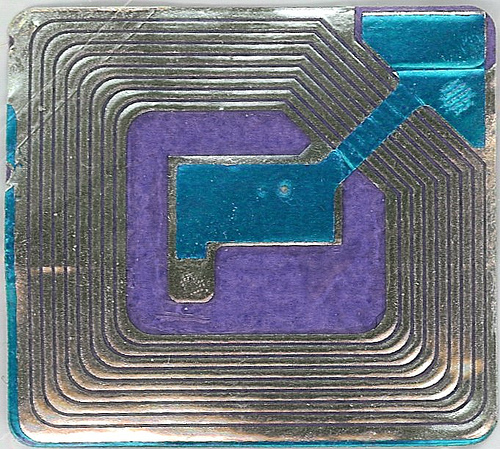
RFID Tag (not actual size) © midnightcomm
Vagabondish is reader-supported. When you buy through links on our site, we may earn a small affiliate commission. Read our disclosure.
If an experiment just launched at Heathrow Airport is successful, the days of your bag arriving in London while you disembark in Tokyo may be history. Heathrow Airport, through its owners Emirates and BAA, is conducting a six month trial with radio tagging air travelers’ baggage.
The experiment will involve close to 300,000 bags in flights between Heathrow, Dubai and Hong Kong.
So, what are radio ID tags? RFID (Radio Frequency identification) tags consist of a silicon chip that transmits data to a wireless receiver though an antenna. Unlike normal bar codes that require manual scanning and reading, wireless reading can be done at a rate of hundreds of tags per second. Not only are they super fast, but they also contain more information, which in turn increases their efficiency. Currently, radio tags are used in package delivery and highway toll supervision, beside the airline industry, of course.
These new baggage radio tags will be used alongside the usual bar codes at Heathrow during the experiment. For now Heathrow isn’t placing all its bags in the RFID basket, but in the near future, who knows?


